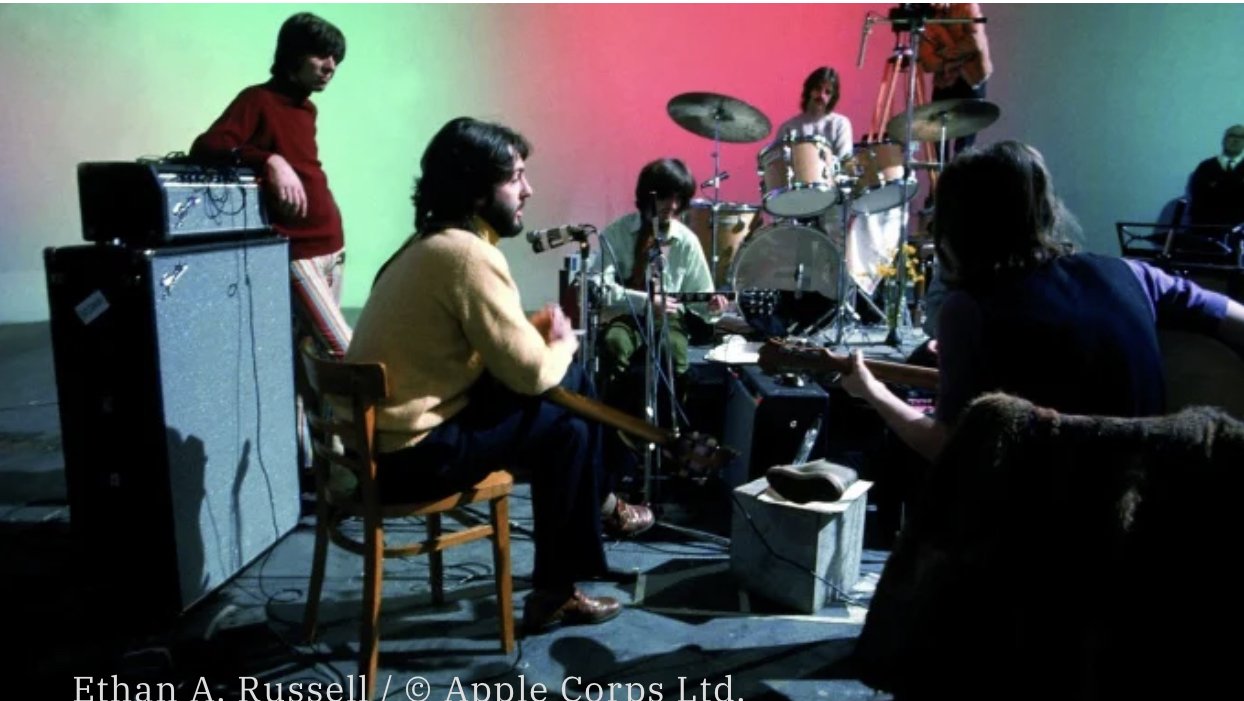Classics™️
Some music is just classic. It doesn’t matter if you like it, because enough other people do, that it now sits firmly in the annals of history. I know that statement is true.
No matter how legendary something becomes there is always some internet troll who relentlessly “slanders” that legendary thing. It doesn’t make the thing any less classic though. The Beatles (my four muses) are the epitome of legendary, and no amount of contrarians is going to undo that fact. This notion is backed up by the success of the (awesome) new documentary The Beatles: Get Back, by Peter Jackson. Five decades after the source recordings were made, the same year the band composed its last album, three generations of people (and counting) have become compelled and mesmerized by their magic all over again
Some Classic™ music isn’t well known, however. Only a niche group of people are aware which Scandinavian Black Metal albums fit the bill and which do not. Even as an avid metalhead, I’m not entirely sure.
Point is: lesser-known music still has its fair share of coveted artists and albums, you just have to be in “the know.” Don Caballero’s American Don is a *certified* Math Rock™ Classic™ even though most people don't even know that Math Rock™ exists.
I could go on about what constitutes a Classic™ and how the definition of a term that represents universal agreement is also regularly disputed.
Actually, I suppose I will. And I’ll also talk to you about an "Indie" album I think is a Classic™ .
Indie™ a stupid name for a genre. It’s such a vague term (like Experimental and Alternative, and even Pop) that it’s comical. If it means “independent” then that should mean the music makers are signed to a small label or that they don’t abide by typical genre norms. Yet Indie has a sound. We all know it. Jangly guitars, sometimes spacey, with imitation “raw” production and a vocalist whose voice is "off" but manufactured for mass appeal. At this point, it’s a sound that is neither unique nor independent.
Math Rock™— THAT is actually different
(Though, like all genres, its parameters have slowly become defined.)
Introduce Minus The Bear. To a casual music listener, they might sound like Indie™, but in the eyes of The Know™, they are more than that. The band's first album, Highly Refined Pirates, is sometimes classified as Math Rock™, largely because of the unexpected changes in rhythm and the use of tapping on guitar strings. But they only occasionally abandon common time signatures, while Math Rock™ is called that because of the style's distinctly odd phrasing.
Also, Minus the Bear (an inside joke about the ‘80s television show BJ and the Bear…[cough]…) is pretty damn catchy. If not for the music’s “math-y” tendencies, it could even be considered Pop™.
These idiosyncrasies create a categorization dilemma; a common problem which reveals the intrinsic subjectiveness in the supposedly objective Classic™.
I first heard Minus the Bear’s debut album in high school, probably sophomore year. Highly Refined Pirates was Highly Fucking Cool Summertime Music. It literally feels like summer. In many ways, the track list was the soundtrack to my adolescence. At first, it was something my developing mind considered movie-like. Carefree nights, maybe on a beach or at a house party. Beautiful ladies amidst (cuz they weren’t women yet). A little bit of alcohol (or a lot, depending on the song) to set the mood; perhaps something more interesting. But the thing is: I’d never had alcohol, drugs or sex. And in fact, I didn’t even really desire to live with reckless abandon. (Admittedly, sex would have been nice. I was a teenage boy after all.)
Jake Snyder, the band’s lead singer and primary songwriter, is a master at drawing up imagery. Each entry has a setting and its inhabitants, sometimes plainly described, other times merely implied. He doesn’t offer plot and he skips a few details, so the songs are less like stories and more like slightly faded memories. I hadn’t yet experienced anything he was singing about, but I saw the songs in my head with clarity. I was there and they were my memories.
Of course, I did eventually drink alcohol, have sex, and do drugs. I went to hip places with interesting people and attractive women. I stayed up late, carefree, and I submitted myself to vibes instead of reality. Highly Refined Pirates began to ring true. My friends and I (sort of) lived the album, and we played it in the background the whole time. (Hell, I think we saw them in concert ten times.)
What was once a daydream turned into reality.
Art is curious that way. Recordings or paintings are fixed; but as you change, they change in tandem. In that divine way, they’re endlessly malleable. They have the potential to become anything.
Art is also potent. It changes you.
My lifestyle started resembling the album. Strangely, I noticed I felt differently about the words and sounds. At one time, I believed the band members were living the dream: playing music, doing what they loved, transparent and happy. And their music was a romantic metaphor for that ideal life. As time went on— new experiences good and bad— the meaning of the album evolved.
(Aside: My relationship with Highly Refined Pirates is unique and personal, but these types of relationships are not uncommon in the world. Every time artistic creation intersects with life, something new is created. Coalescence between art and life is inevitable and boundless.)
I started to find buried melancholy in Snyder's voice and cynicism in the cool guitars. Maybe, the songs were just a fantasy for them, too. Sure, being in a touring band is a pretty cool career, but no lifestyle is without its drawbacks.
This begs the question: was the music always like this?
Probably.
A writer like Snyder, adept at painting pictures for the listener, is surely able to inject nuance and even contradiction into his words.
At some point in my 20s, I began to feel guilty about my irresponsible partying and carelessness in relationships. The “only young once” excuse was getting thin.
I won’t bore you by sharing all of the ways in which I’ve grown up since sophomore year of high school, but I’m pretty convinced I have.
Still, every year to this day, when the warm weather breaks through at the end of winter, I get an irresistible compulsion to take a highway drive and blast Minus the Bear’s music through my stereo. Not a single time, have I found the album diminished in value. On the contrary, its durability serves to reinforce my love for it.
And this is why the album never grew off of me with age.
I’m not the only one who has been impacted by this album in this way. Math Rock™ fans (even if the music doesn’t exactly fit the genre) and Indie™ fans alike seem to think the album is a classic, too. A Cult Classic™, at least; though the absoluteness of Niche Classics™ is always more disputable. There’s not the same ubiquitous love for them as there is for, say, Michael Jackson’s Thriller.
At any rate, however, regardless of outside influence, Highly Refined Pirates is a Bryan Infante Classic™.
We all have these—the personal classics. Underground genres have their classics. And the world-at-large has undeniable, timeless classics that grace the ears of grandparents and grandchildren alike, inspiring new ears endlessly into the future.
People can debate about this “classic” label all they want. Some people do throw the term around loosely. Your classics might not be someone else’s classics. And that’s okay. They can’t be taken from you.
When an album has changed you irreversibly, and you return to it fondly over and over again, still loving it after you’ve changed in many ways, then the personal classics are the only ones that count.
Afterthought: In this piece, I steered away from specific details about the music in fear that it would dilute the message. In the coming days, see my pinned tweet for favorite Minus the Bear songs and lyrics. @ByRoN_Infiniti on twitter.



